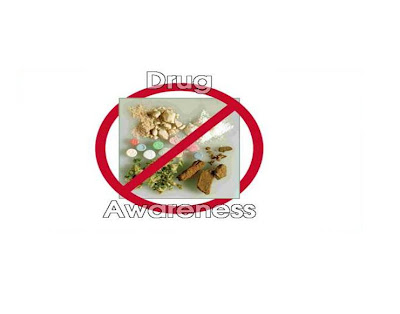Access to Employment and Education
Problematic alcohol and drug use is strongly
associated with difficulties in gaining and retaining full employment. People
who have had long term alcohol and drug problems often experience difficulty in
entering or re-entering the employment market.
Problematic alcohol and drug use can also be
associated with difficulties in finishing school or acquiring further
qualifications. The absence of further qualifications can significantly hamper
people’s ability to gain employment, or adequately paid secure employment.
Recommendations:
Adequate resourcing of employment
programs for people who have experienced alcohol and drug problems is needed to
overcome this link between alcohol and drug use and poverty.
Additional support for people
experiencing drug and alcohol problems and the educational institutions they
attend is needed to help keep people with alcohol and drug problems at school
or in further study whilst seeking treatment for their alcohol and drug
problem.
Health Costs
The cost of
drug treatment, medical care, pharmaceutical drugs and pharmacotherapies for
people currently receiving drug treatment or on pharmacotherapy maintenance
programs can add significantly to the cost of living for people with alcohol
and drug problems.
The illegal nature of some forms of drug use and the
high rates of incarceration of people with alcohol and drug problems creates
problems for those who are seeking to gain employment in areas which require
police clearance, seeking a bank loan or relying upon a credit rating.
Recommendation:
Enhanced funding of drug diversion
programs for those convicted of non violent minor drug related offences is required
in order to help break the cycle between drug use, difficulties in gaining
employment or obtaining bank loans and poverty.
Access to Housing
A history of alcohol and drug use can often pose
additional barriers for people seeking reliable and affordable housing. In
turn, the absence of secure housing can create difficulties in gaining and
retaining employment.
Recommendation:
Housing assistance programs for people
leaving drug and alcohol treatment programs are critical in ensuring that they
can afford adequate housing.
Emotional and
Social Support
The breakdown of
family and social networks experienced by many people with alcohol and drug
problems adds to the risk that they will be affected by poverty as financial
and emotional support networks are withdrawn.
Recommendations:
Ongoing
resourcing of adequate support programs for people with alcohol and drug
problems and their families and significant others is critical in ensuring that
these ‘safety nets’ against homelessness and poverty can remain in place.
Resourcing
drug and alcohol agencies to enable them to collect and analyse data relating
to client profiles, drug trends and other relevant issues to inform future
policy priorities.
Longitudinal
research to explore causal links between alcohol and drug use and poverty.
People experiencing drug problems in accessing basic
living needs include
Employment
and Education
Health
Legal and
Financial Security
Housing
Emotional and
Social Support
-->
The links
between poverty, alcohol and drug use create a cycle of poverty and
disadvantage which further compounds the difficulties experienced by people
with alcohol and drug problems. This cycle creates additional barriers for
people who are seeking to address their alcohol and drug use. It also degrades
their quality of life of to a point where fundamental rights, like shelter and
nutrition, are compromised.
Whilst the links
between these issues are complex, it is clear that there are practical solutions
to this problem. Intensive employment programs, adequate drug treatment and
housing and support for the families of people with alcohol and drug problems
are just some of the ways in which the links between poverty, alcohol and drug
use can begin to be broken down.
Despite the
enactment of the Alcoholic Drinks Control Act, 2010 some Kenyans still drink
substandard beer, mostly spirits bearing witty names such as ‘Yokozuna’. Many
have died in different cases of such with toxic chemicals which render others
blind. There should be great vigilance and surveillance to see to it that
Kenyans have access to proper manufactured alcoholic drinks to reduce the death
toll.
Parents who
influence their children to use alcohol and drugs should be mindful of the hang
out joints they take their children for recreation. Some children get on with
the behavior they see around causing psychological harm at an early age.
The NEW YOU
INITIATIVE is geared up to see the attainment of Vision 2030. For this to
happen, everyone should be part of the movement, we all have a role to play!








